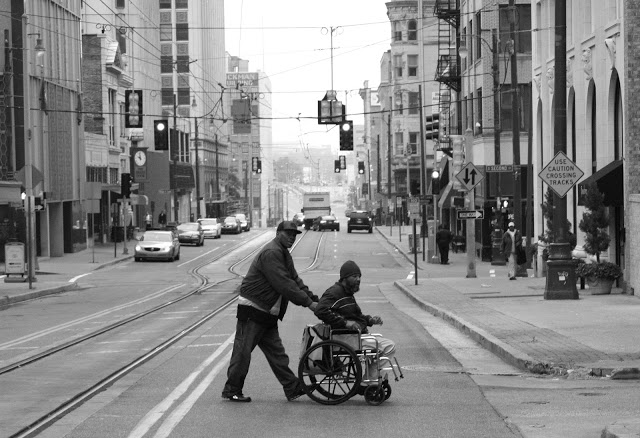Hero.
Repeat it aloud, slowly, with emphasis. Hero.
Does it stir something in you?
For many of us, one whisper of this lofty word evokes feelings of pride and hope deep within our souls. It brings forth images of bravery: a soldier carrying a wounded citizen in his arms, women marching through the streets for voting rights, an African American refusing to give up her seat on a bus.
We can’t help but think of history’s movers and shakers who have made the world a better place. Abraham Lincoln. The Dalai Lama. Dr. M.L.K.
You and me.
What? You say.
That’s not possible. I didn’t do anything worthy of mention. I have never lead a movement or been an international spokesperson for peace. My actions will never count in any significant way.
This attitude seems to be common among people in their thirties and forties today. Many men and women from my generation have been raised believing that they could—and should—lead extraordinary lives.
Well-meaning parents have encouraged us to do something great, but instead of building our self-esteem, such heartfelt praise can sometimes wreak havoc on our ability to be an active and caring presence in the world. The bar seems set beyond our reach. We are left aspiring to be like those we call heroes, while at the same time facing the reality that very few people are recognized as influencing society in some substantial way. In our minds, nothing we do can ever measure up. Instead of reaching out and doing good for others, we freeze and end up doing nothing at all.
But perhaps being a hero isn’t about having your name in history books. Perhaps in order to get over the mental blocks keeping us from doing good, we must reclaim the word to simply mean someone who acts out of compassion to help another human being.
It was Desmond Tutu who said, “Do your little bit of good where you are; it’s those little bits of good put together that overwhelm the world.”
Every time we serve the needs of someone else, it not only promotes the health and wellness of that one person, but also has the potential to benefit numerous others. Lifting a depressed man’s mood will make him kinder to his family and friends. Tutoring a child so she can graduate from school might inspire her to become a teacher herself.
It’s like throwing a pebble in a pond: one good deed creates a ripple effect that continues far beyond the source, potentially touching infinite lives and having an astronomical impact on the world.
A hero need not fix someone else’s problems. You do not have to make a poor man rich or show someone how to find happiness after a loved one’s death. Sometimes heroism is simply the courage to be present with those who are struggling, even when you know their problem cannot be solved. It is allowing yourself to be uncomfortable where no solution is at hand, while still remaining there and offering compassion.
So what are five concrete ways we can reach out and make a difference in our community?
1) Homeless shelters: Most cities have homeless shelters where men and women come to have their basic needs met. Contact local homeless shelters or churches about volunteering to cook and serve meals for them. Offering food and companionship will give both physical and emotional nourishment to the most vulnerable among us.
2) Youth programs: Many youth in our community lack positive role models to guide them through life, often leading to problems with self-esteem, truancy or dropping out of school. Organizations such as Big Brothers / Big Sisters connect adult volunteers with children and teens to provide them with friendship so that they will feel like someone cares and develop healthy self-esteem.
3) Nursing homes: Many elderly people are left in nursing homes with little or no visitation from family. Many programs arrange for volunteers to come in and socialize with them. Just spending an hour sitting with seniors and listening to their stories could really lift their spirits and give them something to look forward to every week.
4) Neighborhood outreach: Most neighborhoods have older or disabled homeowners who are unable to mow the lawn, rake the leaves, or engage in other types of upkeep. Knock on your neighbors’ doors and offer your assistance with physical labor, especially during the winter months when snow shoveling becomes a necessity.
5) Contacting someone in crisis: A friend loses his job. A coworker’s father passes away. Any number of tragedies can strike those around us. Make it a point to reach out with a simple call or text showing your concern and letting the person know you care.
So go ahead. There’s no time like the present to step up and influence the world in a profound way. Make a commitment now to reach out and do good for another human being.
You just might feel like a hero for a day.
Love elephant and want to go steady?
Sign up for our (curated) daily and weekly newsletters!
Editor: Renée Picard
Photo: Paul Hopkins at Pixoto







Read 3 comments and reply